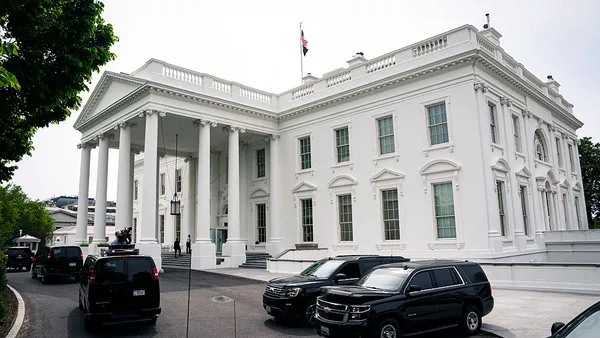Dive Brief:
-
Facing a shortage of more than 23,000 affordable housing units, voters in Portland, OR, have approved a $258.4 million bond (Measure 26-179) that will fund construction of 1,300 such units, according to Oregon Public Broadcasting. To help pay for the measure, property taxes will also increase 42 cents per $1,000 of assessed value.
-
Under the plan, 950 of those units will be built new and the other 350 will come from existing buildings. Of the 1,300 total units, 600 will be reserved for those earning less than 30% of the area's median income and the rest will target those making less than 60% of the median income.
-
Proponents said the measure, which requires Portland to own and pay for costs associated with projects paid for by the bond, could provide a new path to affordable housing there. Critics contend that the measure doesn't deliver enough units for the amount it will spend.
Dive Insight:
A lack of affordable housing inventory to meet rising demand is a challenge facing a number of U.S. cities, including Portland, as housing prices continue to edge higher.
In July, the Portland City Council took a step toward funding new construction that could loosen inventory and soften prices by approving a 1% construction excise tax that would raise $8 million annually to finance affordable housing there. Meanwhile, prices continue to rise. The 20-city S&P Core Logic Case-Shiller U.S. National Home Price Index reported in August that home prices in Portland rose 11.7% year-over-year, the largest increase of all cities tracked for the period.
Other cities are tackling a lack of affordable housing through inclusionary zoning and housing requirements.
Last week, the Real Estate Board of New York, along with state and union officials, struck a deal to breath new life into New York City’s 421-a tax break, which requires developers to earmark 20% of a project’s units for low- to moderate-income tenants. San Francisco voters also recently approved requirements for builders of the city's residential developments to include 25% affordable units, up from 12% previously.
A lingering area of concern for the housing industry is the inability of younger first-time buyers to secure enough money for a down payment amid rising home prices, high rents and student debt. A recent analysis of U.S. Census data underlined the problem as rental rates, adjusted for inflation, have climbed 64% since 1960, while incomes have only risen 18%.
For more housing news, sign up for our daily residential construction newsletter.














